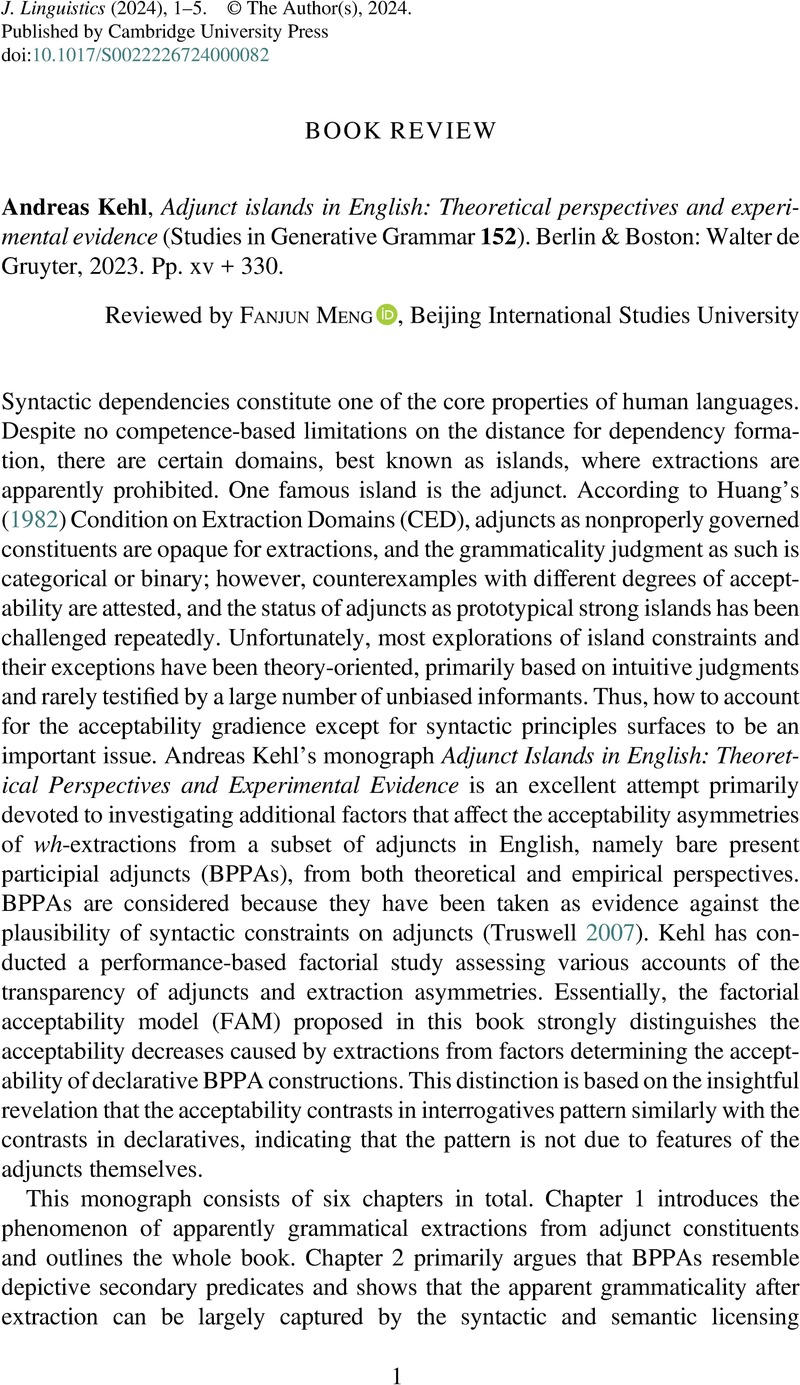No CrossRef data available.
Article contents
Andreas Kehl, Adjunct islands in English: Theoretical perspectives and experimental evidence (Studies in Generative Grammar 152). Berlin & Boston: Walter de Gruyter, 2023. Pp. xv + 330.
Review products
Andreas Kehl, Adjunct islands in English: Theoretical perspectives and experimental evidence (Studies in Generative Grammar 152). Berlin & Boston: Walter de Gruyter, 2023. Pp. xv + 330.
Published online by Cambridge University Press: 22 April 2024
Abstract
An abstract is not available for this content so a preview has been provided. Please use the Get access link above for information on how to access this content.

- Type
- Book Review
- Information
- Copyright
- © The Author(s), 2024. Published by Cambridge University Press
References
Borgonovo, Claudia & Neeleman, Ad. 2000. Transparent adjuncts. Canadian Journal of Linguistics/Revue canadienne de linguistique 45, 199–224.CrossRefGoogle Scholar
Brown, Jessica M. 2017. Heads and adjuncts: An experimental study of subextraction from participials and coordination in English, German and Norwegian. Ph.D. dissertation, University of Cambridge.Google Scholar
Culicover, Peter W., Varaschin, Giuseppe & Winkler, Susanne. 2022. The radical unacceptability hypothesis: Accounting for unacceptability without universal constraints. Languages 7, 1–33.CrossRefGoogle Scholar
Huang, Cheng-Teh James. 1982. Logical relations in Chinese and the theory of grammar. Ph.D. dissertation, MIT.Google Scholar
Truswell, Robert. 2007. Extraction from adjuncts and the structure of events. Lingua 117, 1355–1377.CrossRefGoogle Scholar





